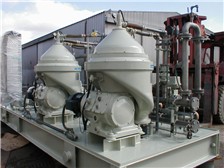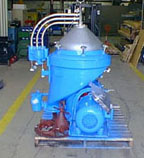Neo-conservatives within the Bush Administration -- Vice President Dick Cheney, Defense Secretary Donald Rumsfeld, Assistant Secretary of Defense Paul Wolfowitz, Assistant Secretary of Defense for Policy Douglas Feith, Defense Policy Board member Richard Perle, and others, repeatedly told us on TV that individuals who opposed President George W. Bush's attack, invasion, and occupation of Iraq value democracy and human rights less than they do.
But the people and organizations who tried to prevent this "preventive" war included the United Nations; people of faith (Muslims, Christians, and Jews); the governments of France, Germany, Russia, China; the Islamic Conference (including Indonesia, the most populated Muslim nation); the Organization of American States; the Arab League; the Organization of African Unity; former President Jimmy Carter; Pope John Paul; 133 members of the U.S. Congress; 10 to 15 million people who took to the streets for peace all over the world on February 15, 2003; Senator Robert Byrd (who articulated a critique of Bush's war aims on Constitutional grounds); a half dozen intelligence analysts and career civil servants from the State Department and CIA who either resigned or spoke out against this course; and many others.
To assuage these voices of dissent and to win over the American people to this endeavor, the neo-cons who dominated the foreign policy of the Bush Administration and their allies among the pundit and chattering classes at Fox News, CNN, MSNBC, NPR, and all the rest, capitalized on the fear created by September 11, to win the support of Congress and the American people for a pre-emptive attack on Iraq.
The neo-conservatives said that Saddam Hussein had Weapons of Mass Destruction. He didn't.
They said he was in league with Osama Bin Laden. He wasn't.
They predicted that no major post-war insurgency in Iraq would occur. It did.
They said there would be a wave of pro-Americanism in the Middle East and the world if the United States acted boldly and unilaterally. Instead, there was a regional and even global wave of anti-Americanism.
Saddam's human rights record was not an adequate justification to go to war and the Bush Administration did not seriously try to make it one, until long after the war began and all the other plausible justifications had been proven false.
Bush's grand strategy for the Middle East was hashed out in the 1990s by these same neo-cons who are few in number and have worked together in and out of government for years. The Project for a New American Century became the mouthpiece for this group disseminating the ideas of Administration insiders such as Wolfowitz, Cheney, Rumsfeld, Perle, and others. In January 1998, the PNAC wrote an open letter to President Bill Clinton, forcefully calling for the overthrow of Saddam Hussein. "The policy of 'containment' of Saddam Hussein has been steadily eroding," they argued, and "we can no longer depend on our partners in the Gulf War coalition to continue to uphold sanctions." These developments endanger "our friends and allies like Israel and the moderate Arab states, and a significant portion of the world's oil supply." The letter never mentioned "terrorism" but raised the issue of WMD and concluded: "the only acceptable strategy" was "removing Saddam Hussein and his regime from power. That now needs to become the aim of American foreign policy."
The January 1998 letter to Clinton was signed by Rumsfeld, Wolfowitz, Dov Zakheim, William Schneider, Jr., and Peter Rodman -- all top officials in the Defense Department; Richard Armitage, Paula Dobriansky, and John Bolton; Zalmay Khalilzad and Elliot Abrams; and Robert Zoelick. So potent was their call to remove Saddam, that in October 1998, amidst the heated debate of the midterm elections, Congress passed the "Iraq Liberation Act" that made it official U.S. policy to overthrow Saddam.
In December 1998, President Bill Clinton launched "Operation Desert Fox." In the following eight months, the U.S. and Britain fired over 1,100 missiles in eight months at 359 targets inside Iraq killing at least 300 Iraqi civilians.
The PNAC churned out other policy papers in the 1990s with the same general thrust: Now that the Soviet Union no longer existed, the U.S. must use its military power to secure dominance over the Earth, especially the oil producing regions thereby controlling the energy supplies of any future rival.
This Pax Americana would require an aggressive, unilateral foreign policy free from the hindrances of multilateral organizations or treaties, as well as new military bases, and the will and ability to project American power anywhere. An influential PNAC paper from September 2000 states: "At present the United States faces no global rival. America's grand strategy should aim to preserve and extend this advantageous position as far into the future as possible." It called for a major military build up and singled out Iran, Iraq, and North Korea as immediate targets.
In the run up to the war, these neo-cons in the Pentagon set up the "Office of Special Plans." According to Lt. Col. Karen Kwiatkowski who worked with the group, "Instead of developing defense policy alternatives and advice, OSP was used to manufacture propaganda for internal and external use, and pseudo war planning." She watched Cheney, Rumsfeld, Wolfowitz, and Douglas Feith cook the intelligence from May 2002 to February 2003, often relying on dubious Iraqi exiles for information, to support the already made decision to go to war with Iraq.
Said Lt. Col. Kwiatkowski: "I witnessed neoconservative agenda bearers within OSP usurp measured and carefully considered assessments, and through suppression and distortion of intelligence analysis promulgate what were in fact falsehoods to both Congress and the executive office of the president."
Based on this spun and concocted intelligence, Secretary of State Colin Powell told the United Nations General Assembly on February 5, 2003: "Our conservative estimate is that Iraq today has a stockpile of between 100 and 500 tons of chemical weapons agent. That's enough to fill 16,000 battlefield rockets."
On March 30, 2003, ten days after the war began, Rumsfeld said: "We know where [Iraq's WMD] are -- they're in the area around Tikrit and Baghdad and east, west, south, and north somewhat."
Repeated like a mantra by Administration officials was the claim that Saddam Hussein possessed "26,000 liters of anthrax, 38,000 liters of botulin, one and a half tons of nerve agent VX, and 6,500 aerial chemical bombs."
In Cincinnati, on October 7, 2002, President Bush said: "The evidence indicates that Iraq is reconstituting its nuclear weapons program. . . . Iraq has attempted to purchase high-strength aluminum tubes and other equipment needed for gas centrifuges, which are used to enrich uranium for nuclear weapons." [This aluminum tube charge was later proven bogus by both the International Atomic Energy Agency and David Kay's Iraq Survey Group.]
An ABC News poll published on December 17, 2002 found that 89 percent of Americans believed Iraq "does possess chemical, biological, or nuclear weapons." In a similar poll, about 70 percent said they believed Saddam had something to do with 9-11 (which he did not).
President Bush said during his State of the Union on January 28, 2003: "The British government has learned that Saddam Hussein recently sought significant quantities of uranium from Africa." Yet former Ambassador Joseph Wilson, who had been charged by the National Security Council to follow up on the uranium from Niger story, went public in July 2003 saying that the White House knew this information was false well before the President's speech. In any case, it was a highly unusual step for a president to announce to the world sensitive intelligence information which is never done casually. The Niger uranium story was based on documents that were shown conclusively to be rather amateurish forgeries. [I probably should add here that lying to Congress is an impeachable offense.]
Cheney said on Meet the Press on March 16, 2003: "We believe [Saddam] has, in fact, reconstituted nuclear weapons."
Bush and his National Security Adviser Condoleeza Rice both on occasion used the image of a mushroom cloud in sounding the alarm of the Iraqi threat.
In a Vanity Fair interview after the occupation of Iraq was a fait accompli, Wolfowitz said: "The truth is that for reasons that have a lot to do with the U.S. government bureaucracy, we settled on the one issue that everyone could agree on, which was weapons of mass destruction, as the core reason" for going to war.
In April 2003, the United Nations requested that its weapons inspectors be allowed back in to Iraq, they, after all, possessed the knowledge and experience to find the WMD; but the Bush Administration firmly rebuffed this idea. Instead, David Kay's Iraq Survey Group of 1,400 inspectors spent 30,000 hours scouring Iraq for WMD. They found none.
Buried deep inside Dr. Kay's report to Congress is the following statement: "Information found to date suggests that Iraq's large scale capability to develop, produce, and fill CW munitions was reduced -- if not entirely destroyed -- during Operation Desert Storm and Desert Fox, 13 years of UN sanctions, and UN inspections." Kay chose not to include this telling admission in either his introductory remarks or his conclusion.
Buried even deeper inside Kay's report was this: "To date we have not uncovered evidence that Iraq undertook significant post-1998 steps to actually build nuclear weapons or produce fissile material."
The imminent threat posed by Iraqi chemical, biological, and nuclear weapons turned out to be not so imminent.
When the statue of Saddam came down on April 9, 2003, there was great rejoicing in America -- Administration mouthpieces proclaimed a victory for liberty on par with the fall of the Berlin Wall -- but when two American soldiers were killed in Firdos Square by suicide bombers about 36 hours later, the incident wasn't even reported, let alone the irony pointed out.
When Bush landed in a Navy plane on the USS Abraham Lincoln on May 1, 2003 looking martial and gallant in a fighter pilot uniform, helmet tucked under his arm, declaring "Mission Accomplished," his approval ratings were soaring at around 75 percent.
By August 26, 2003, 139 Americans had died in Iraq since Bush's triumphant carrier landing; by September 24, it had climbed to 341 killed, and so on and on and on for the next seven years. Today it stands, (as President Obama pointed out in his speech), at 4,426, with at least 30,000 wounded.
Although the Pentagon says that it is not interested in enemy "body counts," conservative estimates range between 100,000 and 150,000 Iraqi civilians killed.
American soldiers in Iraq still find themselves in a confusing combat environment (even though the "combat" is over), forced to fight in a foreign land where winning the "hearts and minds" of a people they know little about is crucial to the success of their mission.
Hand crafted bombs began claiming the lives of more Americans in Iraq than any other weapon. At first, they were usually made from discarded artillery shells with a detonator wired to a garage door opener or doorbell. They could be set off just about anywhere, buried along roadways or dropped out of vehicles. Fake bombs were set to waste the time of explosive disposal squads or to draw soldiers into ambushes with small arms. New bombs showed up in Iraq wiring together multiple explosives in a "daisy chain" to explode in several places, several yards apart, killing or maiming for life American service men and women. Lately, assassins using silencers are murdering Iraqi police officers in broad daylight.
Then there are the suicide bombers and the enormous car and truck bombs. Missiles attached to donkey carts or fake electricity generators have been used to deadly effect -- often with booby traps of explosives hidden in the wheel wells of vehicles.
American soldiers are still risking their lives every day in Iraq, "combat" or no "combat," and many more will die for this policy our neo-con leaders handed down to us.
The debacle in Iraq is not merely a result of errors in planning or poor decision-making. In devising their plans for Iraq, the neo-cons in the Bush Administration repeatedly and insistently dismissed the vast array of research assembled by think tanks and warnings of its own officials in the State Department and the CIA and the military.
For a small group of men with little understanding of Iraq, warfare, or "nation-building," or "counterinsurgency," is just the arrogant belief that they, and they alone, knew better than anyone else about what was in the United States interests. Their view required not just monumental arrogance but also a cavalier disregard for the life and death consequences of being wrong.
The "threat" Saddam Hussein posed was not "imminent." The war made Americans more hated in the world, especially in the Islamic world; and has made our people more vulnerable to attack both at home and overseas.
The neo-cons and President Bush claimed to know what was in America's interest, but they refused to debate it honestly.
If the Congress and the American people knew the truth about Iraq in 2002 and 2003, they would never have gone to war.
To be silenced by a complacent media and the attack dogs of the jingoistic Right -- to remain silent when we have been systematically lied to would be to betray the fundamental ideals for which our troops have sacrificed their lives on that "battle field" half a world away.
source: www.huffingtonpost.com












